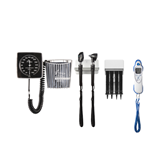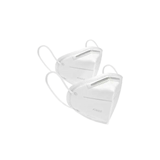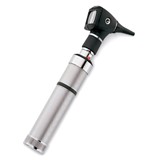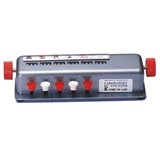Minister for Health Sussan Ley today confirmed the 17 types of common over-the-counter medicines for issues such as headaches, heartburn and constipation that will no longer be subsidised as a prescription drug under the Pharmaceutical Benefits Scheme (PBS) from January 1 2016.
The decision follows advice and consultation by the independent Pharmaceutical Benefits Advisory Committee and is part of the Government's landmark PBS reforms, which passed the Senate earlier this year.
Ley said the measure would particularly benefit concessional patients who were sometimes paying two-to-three times the retail price of common medicines when they bought them through a prescription rather than over-the-counter.
"There's no doubting that many of these over-the-counter drugs such as paracetamol and aspirin can be a simple and easy treatment for various conditions," Ley said.
"These inconsistencies in the system have seen patients and taxpayers unnecessarily paying higher prices to fill prescriptions for medicines that can often be purchased cheaper straight off the shelf.
"For example, we currently have concession card holders right now paying $6.10 for a $2 pack of paracetamol if they buy it using a PBS-subsidised prescription, which also attracts a taxpayer subsidy on top."
Ms Ley said while these 17 medicines made up only about 15 per cent of over-the-counter medicines subsidised under the PBS, between them they generated 8.7 million scripts costing $87 million in 2014-15 – nearly 90 per cent of the annual $100 million taxpayer spend on OTC medicines.
As such, Ms Ley said the changes would also save taxpayers about half-a-billion dollars over the next five years, allowing greater investment in new medicines.
"Every dollar we spend subsidising inefficiencies in the Pharmaceutical Benefits Scheme is a dollar we could be investing in listing new, potentially-lifesaving medicines instead," Ms Ley said.
"This is another example of sensible public policy this Government is delivering that balances the needs of patients, taxpayers and future investment in new medicines."
Ley said the measure would save taxpayers by reducing the cost of subsidising these medicines, whilst also reducing the out-of-pocket costs for many patients so they did not need to reach the PBS safety net as quickly or at all.
Ley said the measure was part of a balanced package of PBS reform measures passed earlier this year that also included: changes that will see many generic drugs drop in price by as much as half; greater competition through the ability of pharmacies to discount the price of the patient co-payment for the first time; a doubling of investment in pharmacy primary care programs for patients to $1.2 billion; and discounts in the price taxpayers pay for expensive medicines still protected by patents.
Ley said the Government also had a strong record of investment in medicines, with 798 new and amended drug listings to the PBS since coming to office – double listings in Labor’s last term.
Ley said the PBAC had recommended a number of more-expensive and emergency over-the-counter drugs would remain subsidised on the PBS for patients with a prescription, including ventolin for asthma, adrenalin epipens for allergies and various nutritional supplements.
"Retaining higher-cost and emergency products such as allergy epipens on the PBS ensures these vital medicines remain affordable for patients when and where they need them," Ley said.
"These changes also make no change to a patient's ability to consult their pharmacist or doctor about the use of over-the-counter medicines and I encourage them to continue do so.
"The market for over-the-counter medicines is also very competitive and therefore patients previously paying the fixed prescription co-payment now have the ability to use their consumer power and shop around for the best price."
The PBAC also recommended retaining PBS access to these medicines for certain patient groups in varying circumstances, such as Aboriginal and Torres Strait Islander persons, paraplegic and quadriplegic patients, and palliative care patients, as well as alternate arrangements for veterans.
The PBAC's advice is based on consultation undertaken with a range of stakeholders in the pharmaceutical supply chain, including consumers and doctors, and can be found on their website.








